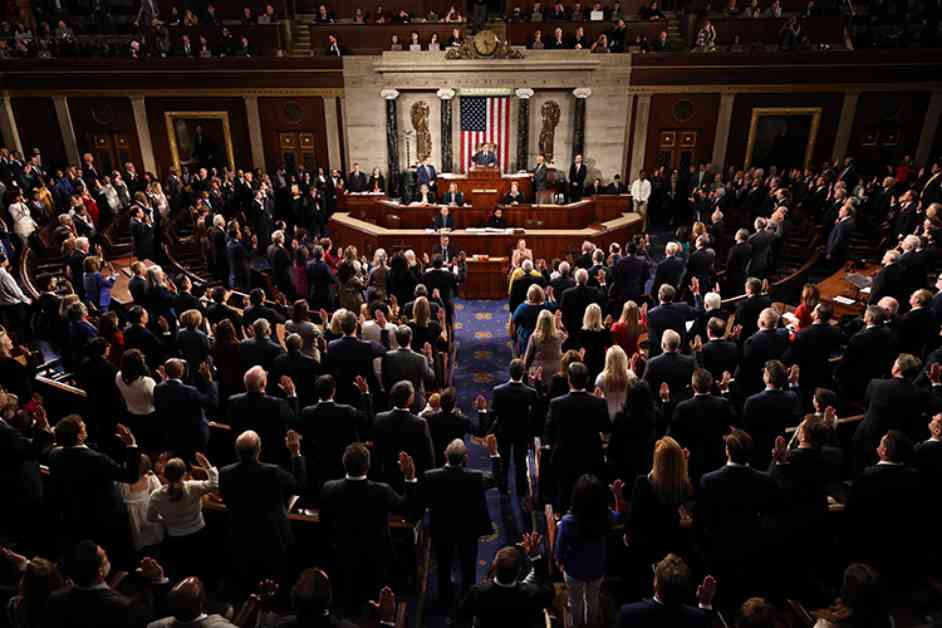The 119th Congress: A New Era in American Politics
With the commencement of the 119th Congress, a wave of change has swept through Washington, D.C. following the 2024 election. The Republican Party now holds the reins of power across all three branches of the U.S. government, marking a historic shift in governance and policy direction. This political landscape sets the stage for a period of significant transformation and challenges as the new Congress embarks on its legislative journey.
A Historical Perspective and a Decisive Agenda
The 2024 election bears a striking historical significance as it marks only the second instance in U.S. history where a former president has returned for a nonconsecutive term. This phenomenon last occurred over a century ago when former President Grover Cleveland assumed office in 1885 and then again in 1893. This historical context adds depth and resonance to the current political landscape, underscoring the unique nature of the present moment.
As the Trump administration assumes power, it is leveraging its experience to swiftly staff the government, set a decisive agenda, and execute sweeping executive actions. The recent U.S. Supreme Court decision affirming presidential immunity from liability for official acts further emboldens the administration to act with greater confidence and assertiveness early in its term. This sets the tone for a period of decisive action and significant policy shifts under the new administration.
Shifts in Congressional Leadership and Narrow Majorities
In Congress, the Republican Party has made significant gains, successfully flipping the U.S. Senate to achieve a 53-47 majority in the upper chamber. The election of South Dakota Sen. John Thune as the next Senate majority leader signals a momentous shift in Republican leadership, elevating a key deputy of Sen. Mitch McConnell into a position of prominence. These leadership changes underscore the shifting power dynamics within Congress and set the stage for a new chapter in legislative policymaking.
Meanwhile, Republicans have retained control of the U.S. House of Representatives by the narrowest of margins, with a current majority of 218 to 215. This slim majority presents a challenge for House Speaker Mike Johnson, who must navigate a delicate balance to advance Trump’s ambitious agenda. The recent election for speaker of the House highlighted the razor-thin margin, emphasizing the need for unity and strategic policymaking within the Republican Party to achieve legislative success.
Challenges and Opportunities in the 119th Congress
As the 119th Congress gears up for the legislative session, a host of critical issues awaits attention. Passing appropriations bills for fiscal year 2025 by March 14 is a pressing priority to avoid a government shutdown threat, followed by addressing appropriations for fiscal year 2026. Confirmation hearings for Trump’s nominations to Cabinet and other key government positions are also underway in the Senate, adding to the complexity of the legislative agenda.
In this dynamic environment, certain issues stand out as opportunities for bipartisan cooperation and progress. Artificial intelligence and data privacy are areas where collaboration is expected to yield meaningful results, while challenges remain in areas such as higher education policy, tax reforms, and border security. Navigating these complex policy issues will require strategic thinking and effective collaboration across party lines to drive legislative success.
Looking Ahead: The ABA’s Role in Advocacy and Policy
As the political landscape evolves, the American Bar Association (ABA) is gearing up to adapt its messaging and advocacy efforts to align with the priorities of the 119th Congress. The ABA Governmental Affairs team is poised to engage with lawmakers, identify strategic opportunities, and advocate for policies that advance the interests of the legal profession and the broader public. In this era of change and transition, the ABA stands ready to play a pivotal role in shaping the policy agenda and advancing key legislative priorities.
In conclusion, the 119th Congress heralds a new era in American politics, marked by historic shifts in power and a host of challenges and opportunities on the horizon. As lawmakers navigate the complexities of governance and policymaking, the role of advocacy organizations like the ABA becomes increasingly crucial in shaping the legislative agenda and advancing the interests of the legal profession. With a spirit of collaboration and strategic thinking, the 119th Congress has the potential to drive meaningful change and shape the future of American governance and policy.















